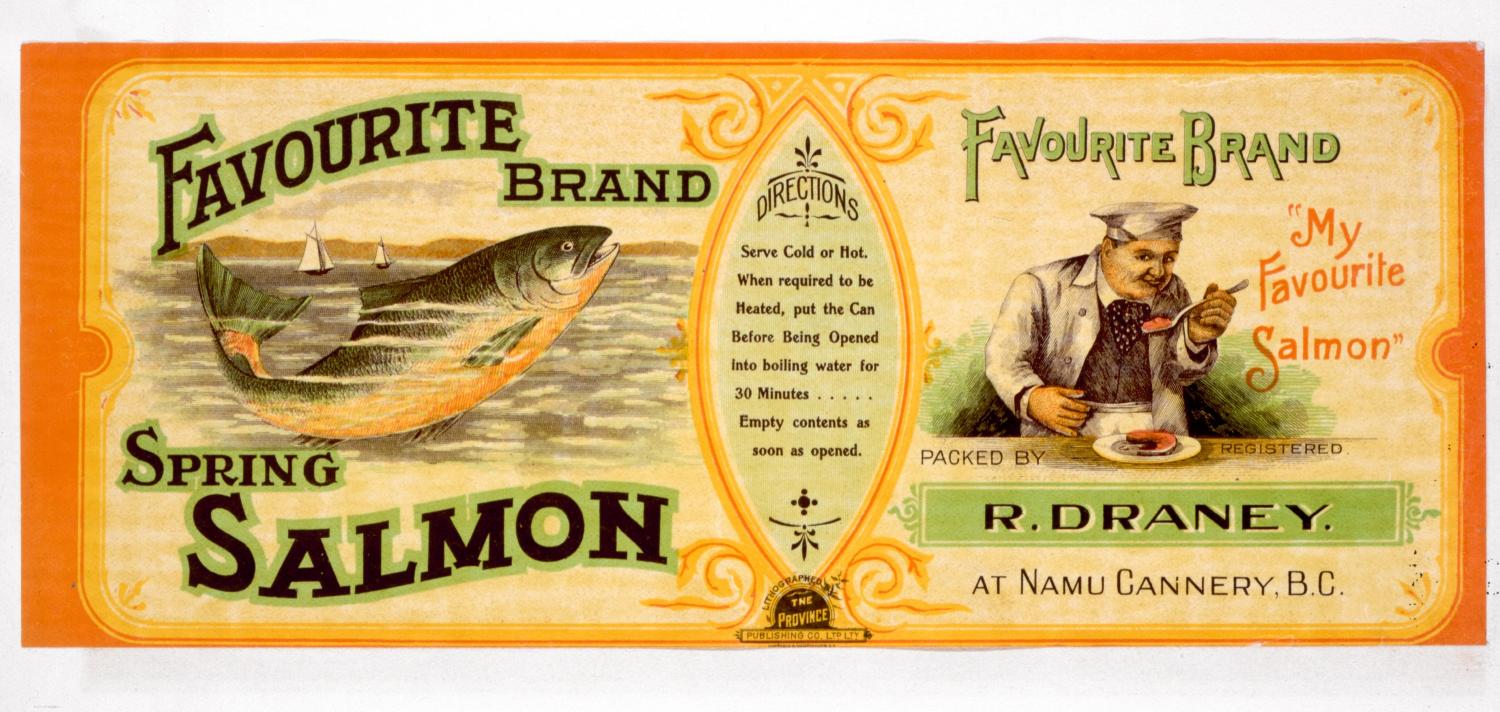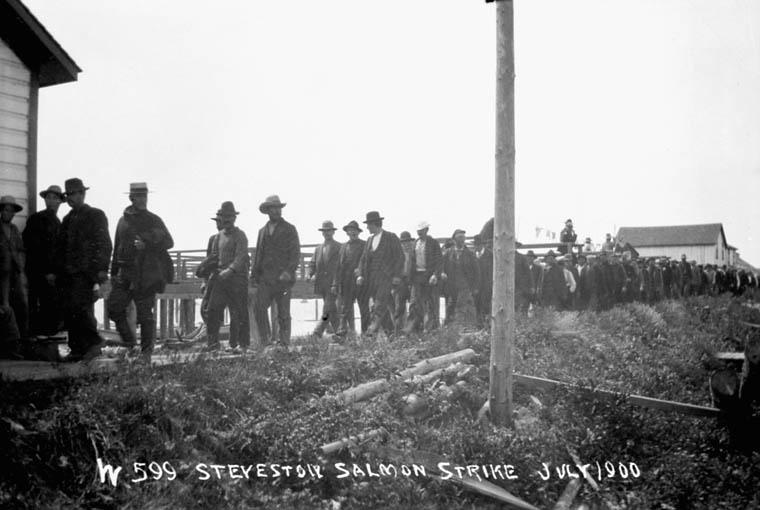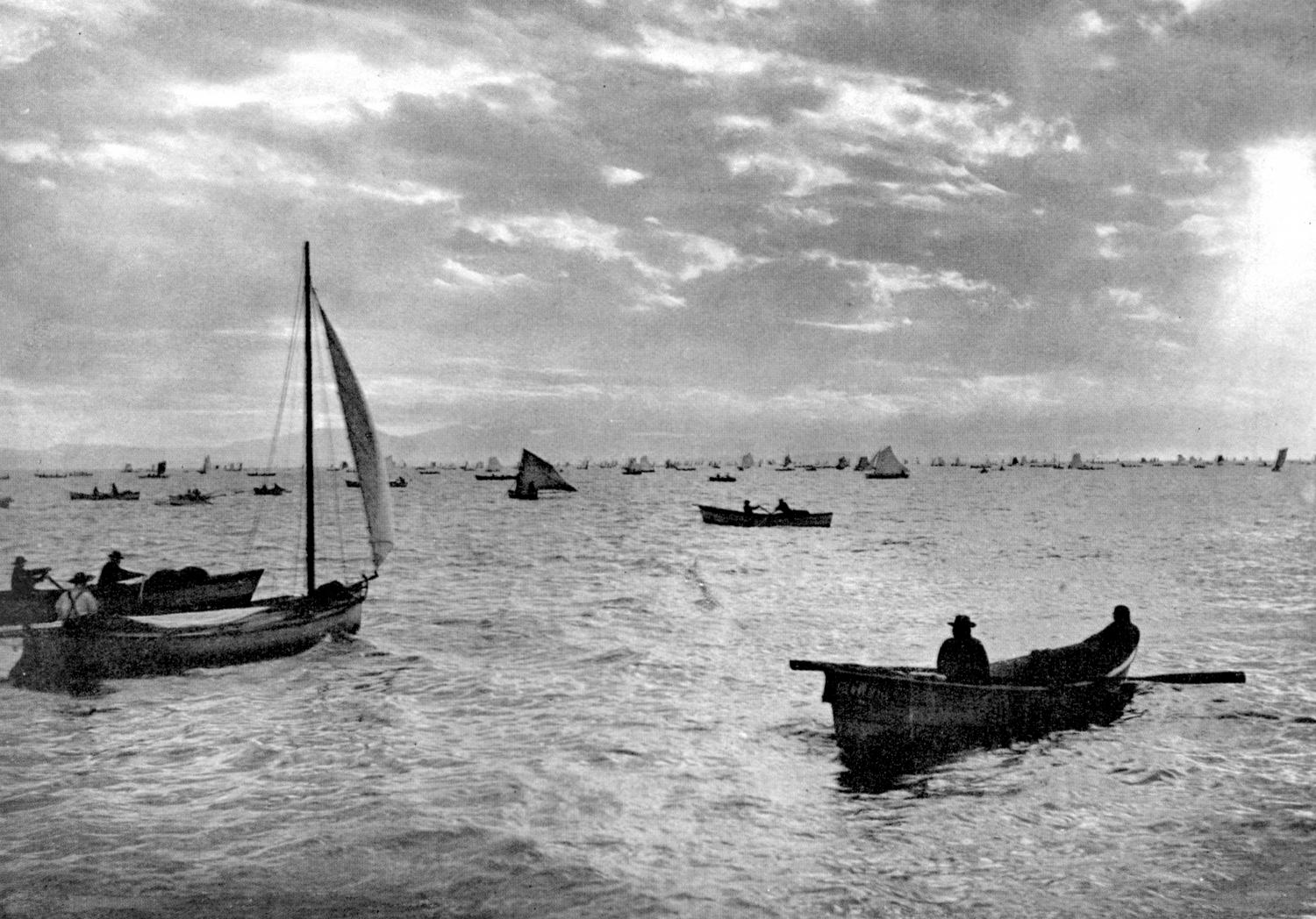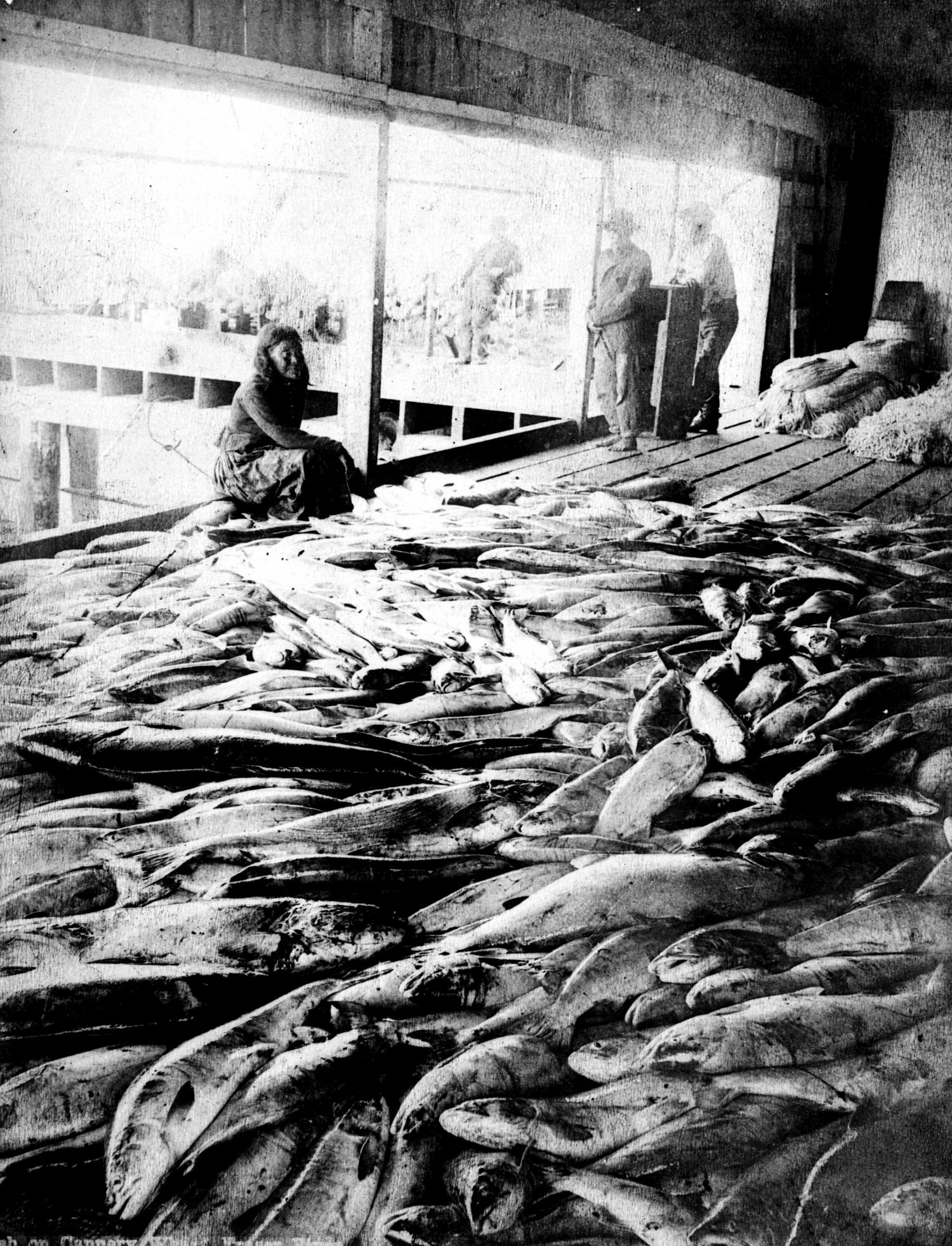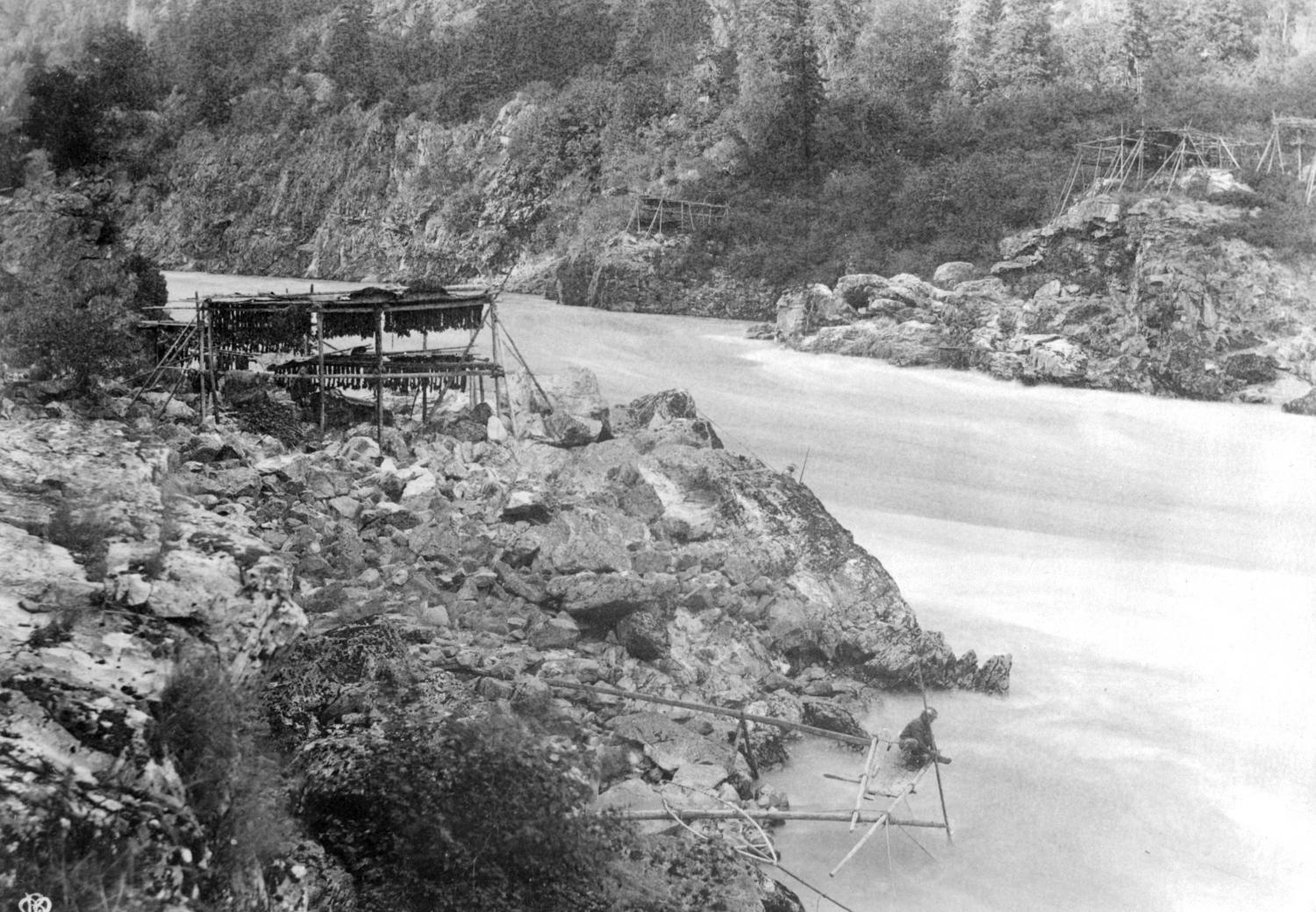B.C. Fishermen Strike
Fraser River fishers overcome racial division to fight canneries for higher wages
Date: 1900
By 1890, advances in fish canning meant more fish could be canned more quickly. Canneries had started recruiting Japanese and white fishermen to bring in more fish, and soon they outnumbered the Indigenous fishermen who had long fished British Columbia's West Coast. Thanks to the higher yield and a strong overseas demand for canned fish, canneries saw their profits soar. However, the increasing number of licensed fishermen didn't see much of this money. At this same time, canneries had switched from paying the fishermen a daily wage to a rate based on fish caught.
Perhaps this new pay model would have been unremarkable if salmon were like any other resource. But sockeye season lasts only six weeks, from mid-July to the end of August. The North Pacific species follows a peculiar schedule: a four-year cycle consisting of a robust spawning year that yields high profits, followed by a year that sees fewer fish, and then two more years with poor turnouts. For the fishermen, a lot is riding on the six week season of the dominant year.
The industry saw its first hiccup in 1893, a dominant year. The economic boom had resulted in overexpansion and company mergers, driving the price of fish down from 20 cents per fish one year to six cents the next. In response, the disparate group of fishermen united and led the first major strike in B.C. fishing history. While the strike itself was ultimately unsuccessful, it was only a preview of what was to come.
Things remained relatively calm until 1900, immediately before 1901's dominant spawning season. Anticipating the high yield, canneries took several money-saving steps. They formed the Fraser River Canners Association, setting maximum fish prices, marked down from the previous year, and production quotas. Any canneries that violated the rules were threatened with fines.
But by this time, the fishermen were divided. After enduring bigotry from white labour activists, the Japanese had set out on their own and formed the Japanese Fishermen's Benevolent Society, while the newly-formed B.C. Fishermen's Union represented white and Indigenous fishermen.
A renewed call for unity among fishermen began with Frank Rogers, a 28-year-old longshoreman from the B.C. Fishermen's Union. He believed there was no way to push back against the canneries if fishermen remained divided. His union needed Japanese support.
It was only with Japanese cooperation that a strike was launched in 1900. Supported by the community, the strike lasted two weeks. Canneries offered to pay 20 cents for a fisher's first 600 fish and 15 cents thereafter. Here, the fishermen diverged again. While white and Indigenous fishermen wanted to hold out for a higher rate, the Japanese were unencumbered by any formal allegiance and free to accept the offer. Three thousand Japanese fishermen soon returned to the Fraser River with a military escort — a request made by the canneries to protect their business interests. When canneries later upped their offer to 19 cents for all fish caught, the remaining strikers finally settled.
The 1900 Fraser River Fishermen Strike proved to be B.C.'s first notable strike outside of mining. It briefly united a diverse coalition of labourers that had previously found themselves bitterly divided. This partnership would even be formalized in the first coast-wide fisherman's union, The Grand Lodge of British Columbia's Fisherman's Unions, formed in September of that year. Sadly, 1901 would prove another story. Violent clashes and racial division tampered any goodwill won the year before. Frank Rogers himself would be shot and killed in 1903, during a CPR strike of longshoremen, becoming the B.C. labour movement's first martyr.
Sources:
1. Meggs, Geoff. Strange New Country: the Fraser River Salmon Strikes of 1900-1901 and the Birth of Modern British Columbia. Harbour Publishing, 2018.
2. Mickleburgh, Rod. On the Line: a History of the British Columbia Labour Movement. Harbour Publishing, 2018.
3. Ralston, Harry Keith. 1900 Strike of Fraser River Sockeye Salmon Fishermen. University of British Columbia, 1 Jan. 1965, open.library.ubc.ca/cIRcle/collections/ubctheses/831/items/1.0105476.
